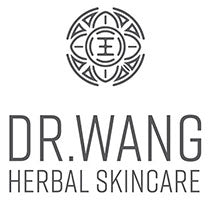The Traditional Chinese Medicine Guide to Skincare
For those who are still unsure or unfamiliar, Traditional Chinese Medicine (also known as TCM) is a holistic therapy that dates back over 5,000 years. “The core concept of TCM is that prevention is the best cure. TCM draws on a system of scientific and practical knowledge, which is rooted in the ancient belief systems about the constitution of the human body, and its close relationship with the environment it exists in.” The goal of Traditional Chinese Medicine is to identify the root cause of sickness or disease and treat it, from the inside out. Many have found Traditional Chinese Medicine to be a great option for those who are suffering from skin conditions.
Traditional Chinese Medicine utilizes a lot of herbs and tea, however, treatments are not one-size-fits-all. You can’t go onto an online store and purchase any old herb and expect to see results. Two people could be suffering from acne, for example. One person’s acne could be triggered by weather patterns or stress, and another’s could be caused by diet. The root cause of the acne is what determines the treatment plan. This is very different from modern Western dermatology, which focuses just on treating symptoms and does not pay much attention to the link between internal health and skin health.
Interested in learning more about Traditional Chinese Medicine but don’t know where to start? We put together this beginner's guide to understanding the basic concepts of Traditional Chinese Medicine.

What is “Qi”, and the Concept of Yin and Yang
One of the most important concepts in Traditional Chinese Medicine is “Qi” (pronounced “chi.”) What is Qi? Qi is the source of Universal life, without it, there is no animating life force. Everything has Qi, and different types of Qi belong to different substances. When the energy in our bodies is low or out of sync, we take Qi from other places and transform it into useable energy for our own bodies. Qi is at the heart of TCM and understanding its function in the human body makes it profoundly effective for healing.
Another important concept in Traditional Chinese Medicine is Yin and Yang. This is one that most people are familiar with as the Yin-Yang symbol is a universally recognized symbol. Yin and Yang are two opposite but complementary forces. Understanding the fundamentals of Yin and Yang is essential to practicing Traditional Chinese Medicine as it is used to understand, diagnose, and treat health issues. Those who practice Traditional Chinese Medicine seek to balance Yin and Yang in their patients.

Your Skin Through the Lens of TCM
In Traditional Chinese Medicine there are five major organs that connect the entire body. They are the kidney, liver, heart, lung, and spleen. The skin is treated as an extension of the lungs. In Traditional Chinese Medicine the lungs are in charge of transporting food, fluids, and protective Qi (known was wei qi) throughout the body. When it is blocked, or the protective qi is too weak, it cannot nourish your skin properly resulting in various skin conditions.
The lungs are a very delicate organ, and there a number of environmental factors which can cause them to be off balance. They include:
- Heat or Fire: This can arise as a result of poor diet or lifestyle habits. Consuming too many foods that have “heat” (for example, foods that are spicy or fried), drinking too much alcohol or caffeine and smoking can all affect the balance and harmony in your lungs. The symptoms on the skin will be redness, dryness or feeling hot which can lead to acne, eczema, and psoriasis.
- Summer Heat: Spending too much time in the sun can cause a number of skin problems including dryness, sunburn, and excess sweating.
- Cold: And on the opposite end of the spectrum, coldness can cause a number of issues too. But this doesn’t just mean cold weather. It can also mean eating a diet that includes too many raw or cold foods and beverages. This goes back to the concept of Yin and Yang. To keep the lungs healthy, you need to have a balance of both hot and cold foods in your diet to maintain good skin.
- Damp: Dampness is another factor that can affect the health of your lungs. This can be caused by poor digestion and a diet that is high in rich or fatty foods. Dampness causes thickening of the skin, pus, pimples and lumps like cystic acne or warts.
- Dryness: And once again see that an opposing factor can also cause skin issues. Dryness of the lungs can be caused by a dry environment, too much heat, or the body not producing enough fluids. This will result in dry or cracked skin.
- Wind: In Traditional Chinese Medicine, excessive wind can disrupt your skin by allowing pathogens to enter. It can cause itching and rashes that are spread over the body including allergic reactions like hives.

Focusing on Internal Issues to Solve External Problems
As we mentioned earlier, Traditional Chinese Medicine puts a heavy emphasis on treating external problems, internally. A lot of prescriptions and treatment plans will include different herbal teas or diet changes. Some popular teas in Traditional Chinene Medicine include chamomile (great for treating acne, and redness.) There is also the wildly popular green tea which can help with overall wellness of the body. But that barely scratches the surface of teas that are used in treatment plans!
There are also several foods that are used in treatment plans. For example, those who are suffering from excessive dry skin are recommended to eat a diet that is rich in both flaxseed and sesame seed. And on the opposite end, those who have damp (oily) skin should try introducing more aduki beans, mung beans, and barley into their diet. Foods that help with “heat” in the lungs include things like daikon radishes, pears, and mint leaves. To protect the skin from pollution, introducing herbs and spices like turmeric (to help with inflammation), oregano (microbial balance), and chaga (an antioxidant) can help Immensely.
But that doesn’t mean treatment plans don’t include topical remedies too. A commonly used plant in Traditional Chinese Medicine is aloe vera. If you’ve ever experienced sunburn, you know how soothing this plant can be when applied. Tea Tree oil in another topical ingredients primarily used to treat acne. And face oils are full of ingredients that hydrate and balance the skin.
Bottomline
This introductory guide is just the beginning in understanding Traditional Chinese Medicine. Follow along with our blog to learn even more!
Steven Wang, MD and Gui Wang, LAc have been working together for over 20 years to provide potent, herbal remedies for spas and individuals around the world. The father-son duo mixes Traditional Chinese Medicine (TCM) with cutting edge scientific advances with the aim of bringing relief, comfort, and happiness to our customers. Our products are the result of decades of dedicated research.
We believe that utilizing both modern Western medicine and time-honored Eastern medicine allows us to provide unique skincare solutions. To learn more, read what experts from The New York Times, Allure, Reader’s Digest, and more have to say about our revolutionary products.




